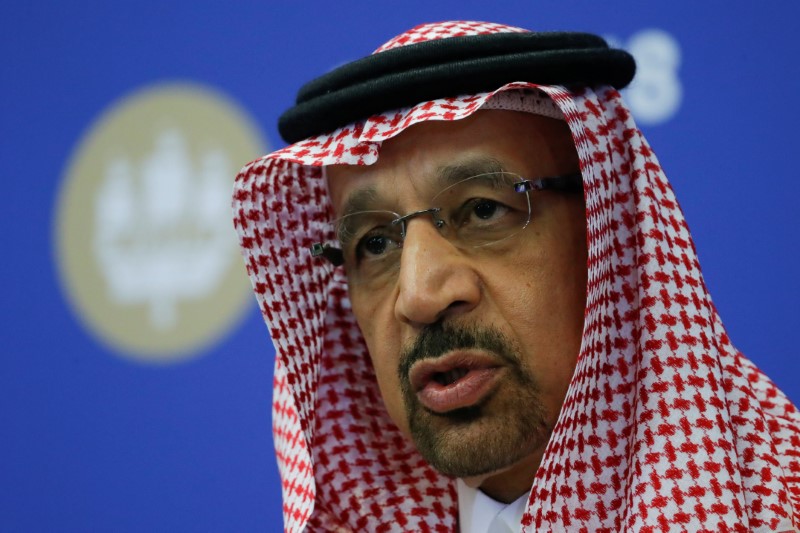(Bloomberg) -- The world’s biggest oil exporter see no need to take immediate action in the crude market, though it will respond to the requirements of buyers affected by the end of U.S. waivers on imports from Iran, Saudi Energy Minister Khalid Al-Falih said.
Oil producers will exercise some market management after June, when the current round of global output cuts is set to expire, Al-Falih told reporters on Wednesday in Riyadh. Saudi Arabia won’t change its production level for May and won’t be decreasing its current output, he said.
“We will see what the customers want,” Al-Falih said. “I think our intent is to remain within our voluntary production limit, but at the same time to be responsive to our customers, especially those who have been under waivers, and those waivers have been withdrawn.”
Al-Falih’s comments were his first extended public response to the U.S. decision on Monday to stop issuing waivers from sanctions for countries buying oil from Iran. Such importers must now secure alternative supplies or risk being hit with U.S. penalties after Washington scrapped the waivers in an effort to pressure Iran over its regional policies and nuclear program.
“We allocated May, and the program is set -- the ships are scheduled -- so I think there will be very little variation in May production from the last couple of months,” he said.
Saudi oil shipments for June will be allocated early next month, he said. “We think there will be an up-tick in real demand, but certainly we’re not going to be preemptive and increase production preemptively because the market is well supplied and inventories continue to rise.”
Saudi Arabia has led the Organization of Petroleum Exporting Countries and allied producers such as Russia in cutting output to try to buttress crude prices and avert a glut.
